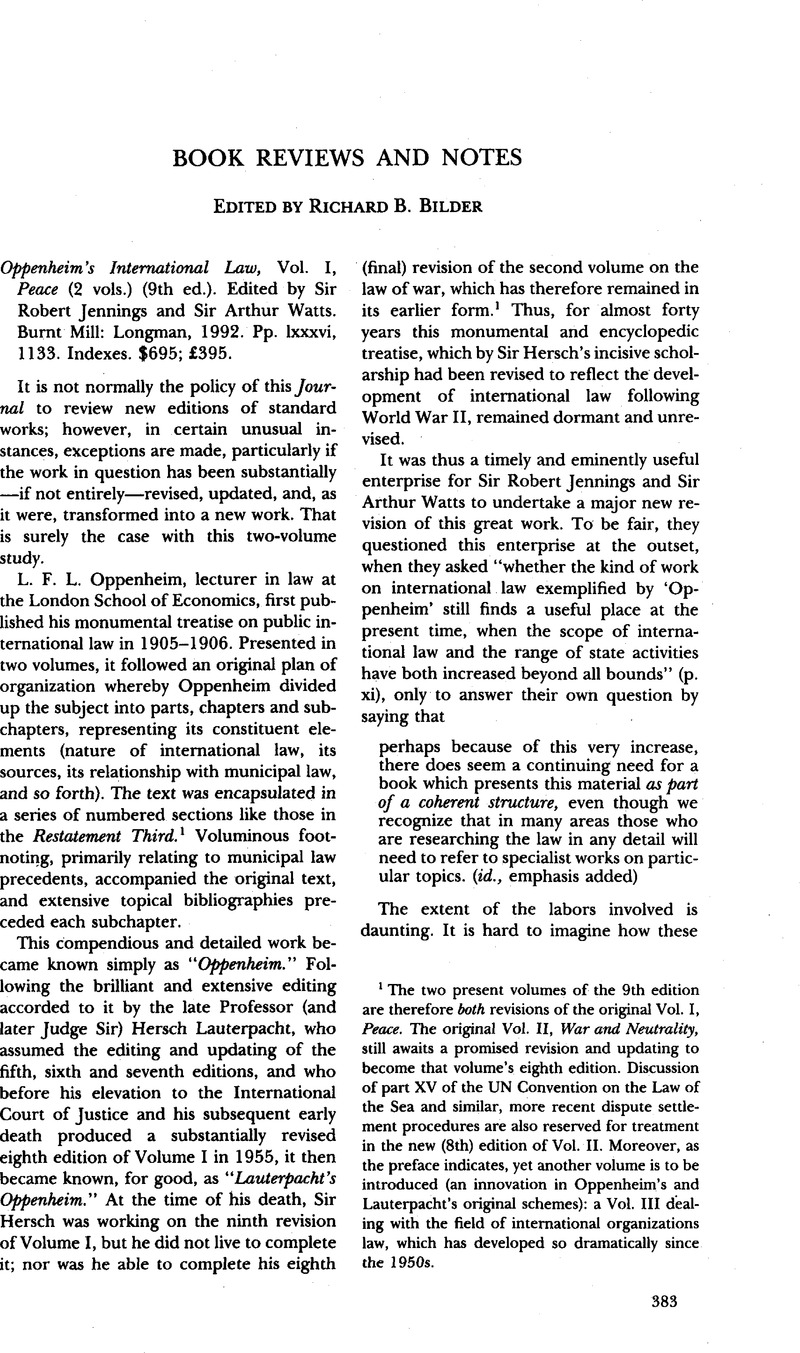Published online by Cambridge University Press: 27 February 2017

1 The two present volumes of the 9th edition are therefore both revisions of the original Vol. I, Peace. The original Vol. II, War and Neutrality, still awaits a promised revision and updating to become that volume's eighth edition. Discussion of part XV of the UN Convention on the Law of the Sea and similar, more recent dispute settlement procedures are also reserved for treatment in the new (8th) edition of Vol. II. Moreover, as the preface indicates, yet another volume is to be introduced (an innovation in Oppenheim's and Lauterpacht's original schemes): a Vol. III dealing with the field of international organizations law, which has developed so dramatically since the 1950s.
2 The publisher's price, however, seems closer to the price of four. See concluding remarks, infra.
3 The preface states, poignantly (and accurately), “[T]hat older material dealt with a world so different from today's that it can be of [only] limited value for current international law” (p. xii).
4 The work's structure and planning sometimes result in a positioning of material that, although logical, nevertheless seems odd. One example is the location in chapter 8 of sees. 407 and 408, dealing with the immensely important subjects of “Property of aliens: expropriation” and “State debts and other contracts with aliens” (pp. 911–31), immediately following sec. 406 (“Aliens in certain African and Asian states”) in the chapter headed “Individuals”; yet the content of sees. 407–9 is now principally relevant to the expropriation and treatment of investments and operations of multinational corporations.